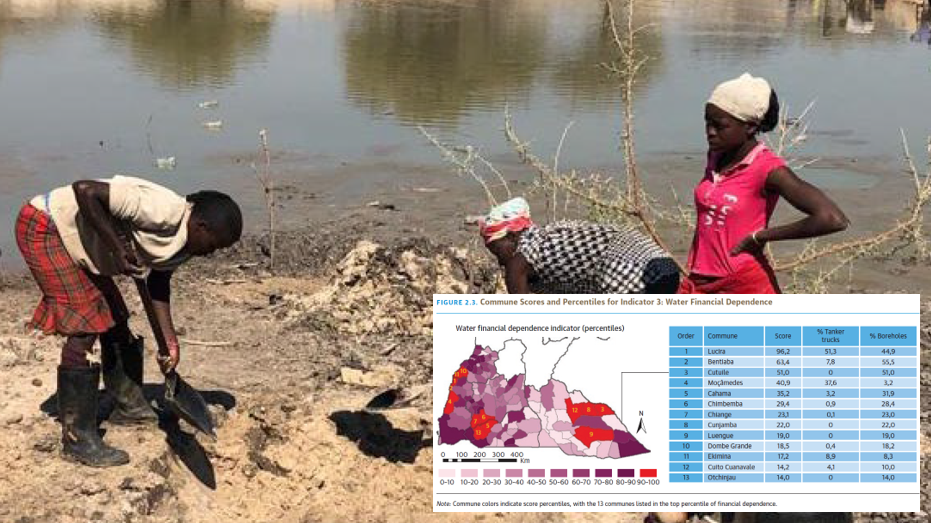
Nature-Based Solutions and geospatial data are important pillars for addressing water security challenges in Africa. The lack of information about the state of water points and aquifers, insufficient knowledge about the potential locations of water resources, and the absence of efficient mechanisms for the development and operation of water infrastructure leave millions of Africans vulnerable to climate change and droughts. Angola is one of the African countries facing water scarcity as a serious environmental threat as climate change exacerbates droughts. The World Bank Report, "Water Security and Drought Resilience in the South of Angola," provides nature-based solutions and actionable measures to improve water security. Using satellite data and geospatial information system (GIS), the report analyzes and characterizes the droughts over the past years to understand the impacts across the region and articulate the structural causes of water access vulnerability, investment prioritization, and the selection of water supply solutions in the South of Angola.
The publication was funded by the Korea Green Growth Trust Fund (KGGTF) through Year 7 Grant - Building Drought Resilience in the South of Angola through the use of geospatial information and nature-based infrastructure (TTL: Aleix Serrat Capdevila, Senior Water Resources Management Specialist, Water GP). The study focuses on understanding the spatial distribution of water-related factors contributing to drought vulnerability to prioritize needs and inform the design of solutions to increase drought resilience across the South of Angola. The recommendations emphasize investments in information and knowledge, rural infrastructure for drought resilience at the community level, and institutions and people for better coordination and decision-making.
